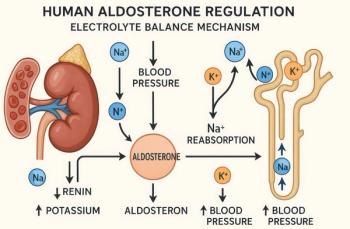
Chlorthalidone for Hypertension: Time to Resuscitate an Old, Tried-and-True Agent?
Some say chlorthalidone is superior to hydrochlorothiazide and should be used as first-line therapy in hypertension. A compelling case can be made for resurrecting this venerable drug.
Here Drs Gregory Rutecki and Bradley Wright make a compelling case for resurrecting chlorthalidone, including its efficacy relative to hydrochlorothiazide.
The speakers make this comment:
“Our theory is that chlorthalidone is probably superior to hydrochlorothiazide and should be used as first-line therapy in hypertension.”
As you’ll hear, though, there are logistical hurdles-including the formulation of chlorthalidone-that currently limit use of this agent.
Gregory Rutecki is Professor of Internal Medicine at the University of South Alabama. Bradley Wright is PharmD at the Auburn University School of Pharmacy and the University of South Alabama.
The speakers address these key points:
• All 7 JNCs recommend a thiazide as first-line therapy. In this country, hydrochlorothiazide is the recommended agent. In 2008, nearly 48 million prescriptions were written for that drug; however, at present dosing levels, hydrochlorothiazide reduces BP an average of only 6.5/4.5 mm Hg.
• There were 19% more cardiovascular events in patients given hydrochlorothiazide than in those who received chlorthalidone.
• The
• Chlorthalidone is probably superior to hydrochlorothiazide.
• Chlorthalidone isn’t prescribed more often because it is difficult to prescribe at low dose, and because it is available in fewer combinations than hydrochlorthiazide.
Chlorthalidone Use in Hypertension
Newsletter
Enhance your clinical practice with the Patient Care newsletter, offering the latest evidence-based guidelines, diagnostic insights, and treatment strategies for primary care physicians.

































































































































